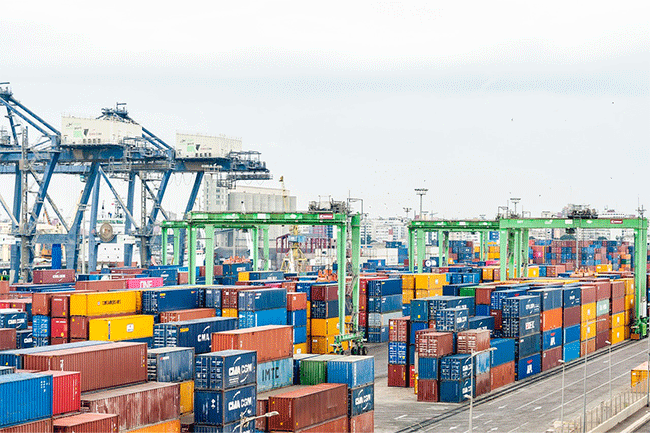Inbound and outbound repair goods refer to goods and articles that are inbound or outbound for maintenance and repair. The supervision method code is "1300", referred to as "repaired articles". This is a special supervision method. In order to help companies better complete the correct declaration of inbound and outbound repair articles, the editor has sorted out and summarized the following declaration points, please pay attention!

I. Scope of application of repair items
Imported and exported repair goods and the raw materials and spare parts required for the import and export of these goods and articles for the repair of these goods and articles.
Goods for inspection and repair entering and leaving bonded areas, bonded port areas, comprehensive bonded areas, export processing zones, etc. and abroad, as well as goods for inspection and repair entering and leaving the domestic area (outside the zone).
II. Requirements for declaration and taxation of imported repair items
1. Entry declaration
When handling import declaration formalities for goods entering the country for repair, the taxpayer shall submit to the customs the repair contract for the goods (or the original export contract containing warranty clauses) and provide the customs with import tax guarantee or the customs shall manage the goods as bonded goods.
If the imported repair goods require the import of raw materials and parts, the taxpayer shall provide the customs with an import tax guarantee when handling the import declaration procedures for raw materials and parts, or the customs shall manage them as bonded goods. The imported raw materials and parts shall only be used to repair the imported repair goods, and the remaining raw materials and parts shall be re-exported together with the imported repair goods.
2. Declaration of re-exit
When going through the export declaration formalities for the re-export of goods that have been repaired after entry, the taxpayer may provide the customs with relevant documents such as the import repair declaration form, the repair contract (or the original export contract containing warranty clauses), and the repair invoice.
If the imported repair goods and the remaining imported raw materials and parts are re-exported, the customs shall handle the refund procedures for the tax guarantee provided by the taxpayer when the repair goods, raw materials and parts entered the country; if the customs implements management as bonded goods, it shall handle it in accordance with the relevant management regulations on bonded goods.
3. Deadline
Goods imported for repair shall be re-exported within the time limit specified by the customs. If the goods imported for repair cannot be re-exported within the time limit specified by the customs due to legitimate reasons, the taxpayer shall explain the situation to the customs before the expiration of the specified time limit and apply for an extension of the time limit for re-export.
If the imported repair goods are not re-exported within the period permitted by the customs (including the extension period), the customs will manage them in accordance with the taxation management regulations for general import and export goods and convert the tax guarantee provided by the taxpayer when the goods enter the country into tax payment.
III. Requirements for declaration and taxation of outbound repair items
1. Departure declaration
When handling export declaration formalities for goods to be repaired abroad, the taxpayer shall submit to the customs the repair contract for the goods (or the original import contract containing warranty clauses).
2. Re-entry declaration
When handling import declaration formalities for goods that have been repaired outside the country and then re-imported into the country, the taxpayer shall submit to the customs relevant documents such as the repair invoice for the goods.
If the machinery, equipment, means of transport or other goods shipped abroad for repair have been declared to the customs when leaving the country and re-imported within the period specified by the customs, the dutiable value shall be determined by reviewing the overseas repair costs and material costs. The customs shall review and determine the dutiable value and calculate the import tax in accordance with the relevant provisions on the dutiable value of imported goods and the exchange rate and tax rate applicable on the day when the customs accepts the declaration of re-importation of the goods.
3. Deadline
Goods shipped out of the country for repair shall be re-imported into the country within the time limit specified by the customs. If the goods shipped out of the country for repair cannot be re-imported into the country within the time limit specified by the customs due to legitimate reasons, the taxpayer shall explain the situation to the customs before the expiration of the specified time limit and apply for an extension of the re-importation period.
If the goods that have been sent abroad for repair are re-imported beyond the period allowed by the customs (including the extension period), the customs will collect import taxes in accordance with the tax management regulations for general imported goods.


 Follow customer service WeChat
Follow customer service WeChat